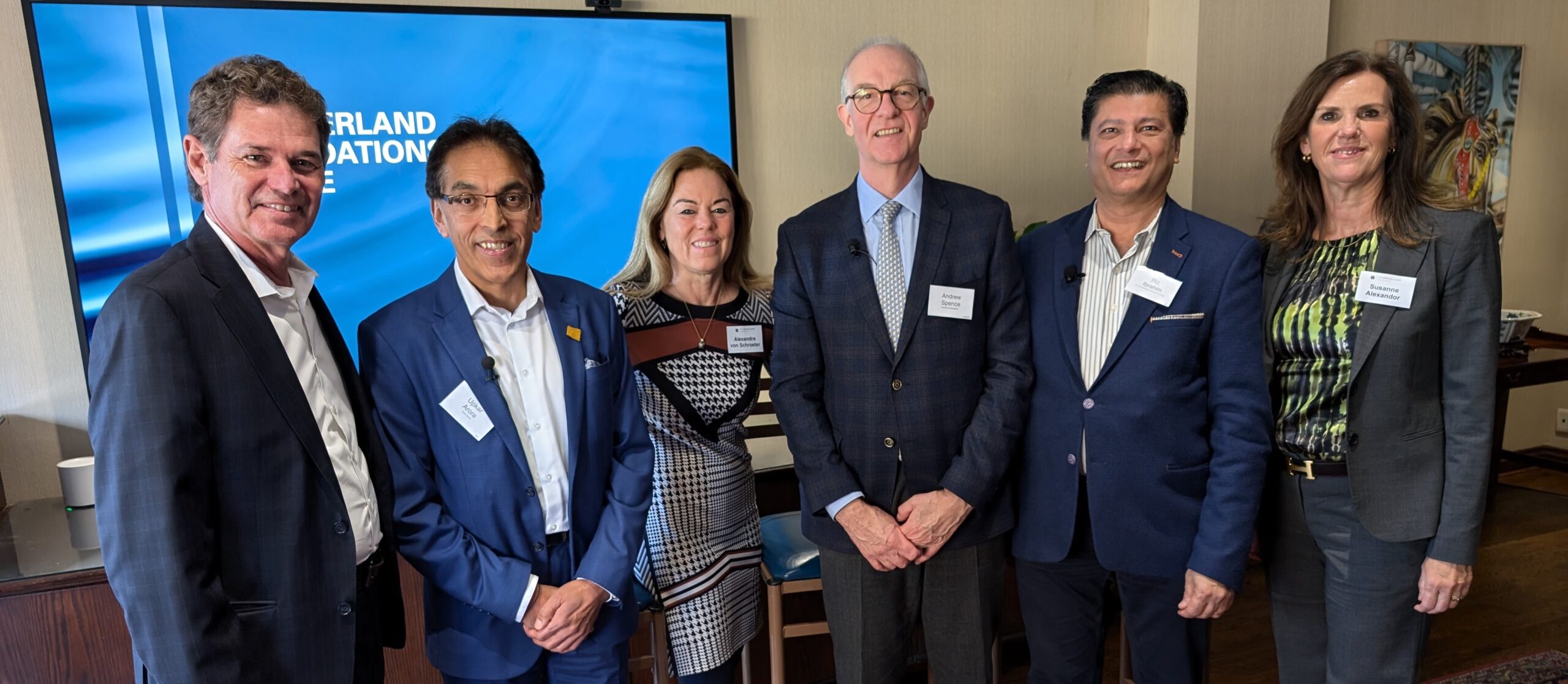Impact Investing Event
Impact investing continues to evolve as more charitable foundations dedicate time and resources to this transformative approach. On Tuesday, November 12th, Cumberland was honoured to host members of the philanthropic community for a dynamic panel discussion featuring three leaders making strides in impact investing.
The event opened with remarks from Alex von Schroeter, Cumberland partner, who welcomed both new and familiar faces to this second Cumberland Foundations Circle event of 2024. She introduced moderator Charlie Sims, CEO of Cumberland Private Wealth Management, and the esteemed panelists:
- Upkar Arora, Founder and CEO of Rally Assets and Managing Partner of Realize Fund L.P.
- Andrew Spence, Founder and CEO of Spence Strategic Consulting Group and Chair of the Investment Committee of Toronto Foundation
- Riz Ibrahim, President and CEO of The Counselling Foundation of Canada
Defining Impact Investing
The conversation began with Charlie asking Upkar to define impact investing. Upkar explained the “four dimensions” that his team uses in managing Rally Asset’s impact funds:
- A positive impact must be intentional from the start
- The impact must be real and tangible
- The impact should be measurable
- There should be an expectation of financial return
Upkar also clarified impact investing versus some of its related categories:
“There are lots of other terms like sustainable, responsible, ethical and so forth. ESG (Environmental, Social, Governance) is often integrated or confused with impact investing and, from our perspective, ESG is not the same. [With ESG], you’re looking at how the world is affecting a company, whereas impact investing is about how a company is affecting the world.”
Transforming Portfolios
Andrew Spence shared the Toronto Foundation’s journey toward a target of 70% impact investments by 2030. This required shifting core beliefs, rewriting the Investment Policy Statement, and engaging specialized advisors.
“We have about $100 million out of our $400 million now invested in intentional impact opportunities. They are delivering the returns they promised, and we are doing more good while getting the return.”
Andrew also addressed some of the governance challenges that can come with impact investing:
“When does an investment become a grant? If a well-deserving enterprise cannot stand on its own and you write off $300,000, how do you justify that to the person you give $10,000 a year to? We’re slowly getting that evaluation process in place, but that’s what keeps me up at night as a board member.”
Mid-Journey Lessons
Riz Ibrahim shared how The Counselling Foundation of Canada began exploring impact investing about a decade ago, and described his progress as “mid-journey.” He highlighted their breakthrough moment – providing a $200,000 loan guarantee to skilled immigrants seeking accreditation in Canada:
“We were using our balance sheet, not our asset base. It was within our wheelhouse. We understood what the impact could be, and the risk was nominal. We really liked it, and it got people thinking, ‘Okay this is something we can get into.’”
Over nearly an hour, the panelists provided invaluable insights into the purpose, strategy, and governance of impact investing and philanthropy more broadly. Their expertise inspired meaningful reflection on how foundations can maximize their resources to drive positive change.
Join Us to Learn More
Cumberland Foundations Circle was created to help families, foundations, professionals, and experts come together in a dynamic set of discussions to share their knowledge and experiences across an array of philanthropic topics, including impact investing.
Interested in learning more? Contact us to access a video replay of this event or to join future discussions.



